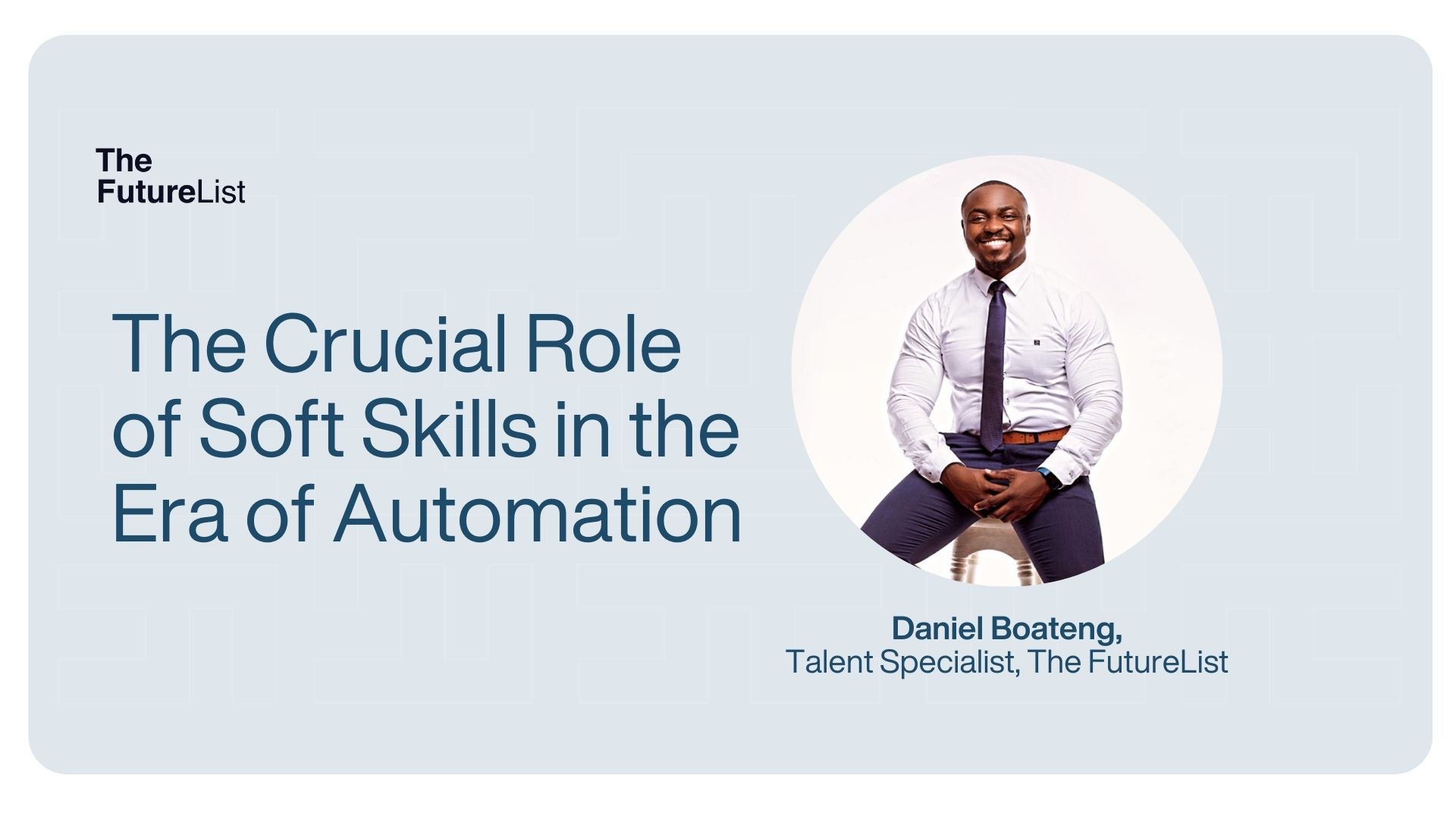
The Crucial Role of Soft Skills in the Age of Automation
Introduction
In an era marked by rapid technological advancements and the growing presence of automation in various industries, the value of soft skills has never been more pronounced. While automation and artificial intelligence (AI) continue to transform the workplace, it’s the human touch—our ability to communicate, empathise, lead, collaborate, and more—that remains irreplaceable in the workplace and validated by a 2023 skills pulse survey. Additionally, a study conducted by the Society of Human Resources Management has noted that, although four-year colleges were traditionally viewed as reliable sources for the development of soft skills, nearly three-quarters of employers now struggle to find graduates possessing the enduring skills they require.
This article explores the critical importance of soft skills, including leadership, in the age of automation and why they are essential for personal and professional success.
The rise of automation has undoubtedly improved efficiency, streamlined processes, and increased productivity across many sectors. Machines can now perform repetitive tasks with precision, analyse vast amounts of data in seconds, and even make decisions based on algorithms. However, as automation continues to reshape the job landscape, it’s becoming evident that certain skills are uniquely human and resistant to automation’s encroachment.
Soft skills encompass a wide range of interpersonal and emotional intelligence abilities, including communication, adaptability, teamwork, empathy, creativity, problem-solving, and leadership. These skills are not easily quantifiable or programmable, making them challenging for machines to replicate. They are what make us uniquely human and provide the foundation for effective collaboration, leadership, and personal growth.
Effective Communication
The ability to convey ideas clearly and persuasively is an essential skill in the workplace not only for visionary leaders or CEOs but also for every single employee. The skill to articulate instructions or convey an organisation’s unique selling points is often undervalued. Soft skills such as active listening, storytelling, and nonverbal communication are essential for building relationships, resolving conflicts, and driving positive change within organisations. Project Oxygen by Google recognised that effective communication skills are pivotal for successful leaders, influencing both individual and team achievements. According to findings from The Holmes Report, inadequate communication results in an average annual cost of $62.4 million for businesses.
Adaptability
Soft skills enable individuals to adapt to rapidly changing circumstances and learn new technologies or processes. Being open to change and possessing a growth mindset are crucial as automation reshapes job roles and industries.
Empathy
Empathetic individuals can understand the needs and emotions of others, fostering better teamwork and customer relationships. In healthcare, for example, automation may handle routine tasks, but the human touch is indispensable when providing emotional support to patients.
Creativity and Innovation
Soft skills like creativity and critical thinking drive innovation. While AI can analyse data and generate insights, it’s humans who conceptualise groundbreaking ideas and solutions.
Problem-Solving
Soft skills empower individuals to approach complex problems with a holistic perspective. They encourage collaboration and the exploration of diverse solutions, which is especially valuable when automation encounters unprecedented challenges.
Leadership
Leadership, another crucial soft skill, involves guiding and inspiring others, setting a vision, and making ethical decisions. It plays a pivotal role in ensuring that teams and organisations function effectively, adapt to change, and achieve their goals.
Conclusion
As automation continues to disrupt traditional job roles, the demand for soft skills, including leadership, will only intensify. Employers are increasingly recognising the importance of these skills in fostering a positive workplace culture, enhancing customer experiences, and driving business success. As a result, job seekers and employees must prioritise the development of soft skills alongside technical competencies. They not only enhance our employability but also enrich our personal lives. As we grow in our professional careers, let’s remember that while machines can be powerful tools, it’s our soft skills that make us invaluable contributors to the workplace.
At The FutureList, we understand the importance of building a strong tech team that aligns with your specific goals and requirements. Our dedicated team of experts and talent partners are here to provide personalised advisory sessions to assist you in assembling a top-notch tech team through navigating the complexities of talent acquisition and creating a dynamic team that drives your organisation’s success. Don’t hesitate to reach out to schedule an advisory call here.
Get innovation insights from The FutureList weekly. Subscribe to our newsletter here.
Categories
- Agritech
- Artificial Intelligence
- Biotech
- Blockchain
- Climate Tech
- Data Infrastructure
- Edtech
- Events
- Fashion
- Fintech
- Healthtech
- Infrastructure
- Innovation Memos
- Innovation Scout Program
- Insight
- Insurtech
- Machine Learning
- Martech
- Mobility
- Music and Media
- Partner Offers
- Perks
- Procurement
- Proptech
- Retailtech
- Ridehailing
- Ridesharing
- Robotics
- Space Aviation
- Supply Chain
- Talent
- Telecoms
- Uncategorized
- Venture Capital
- Wastetech
- Women In Tech